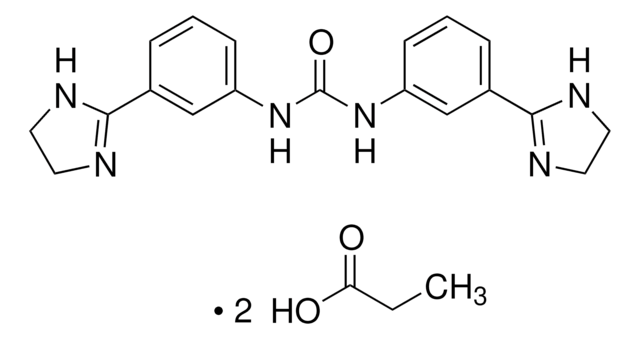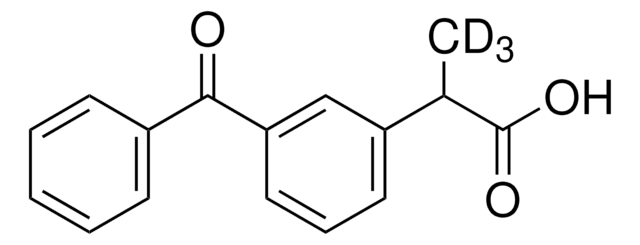32123
Imidocarb dihydrochloride monohydrate
VETRANAL®, analytical standard
Synonym(s):
N,N′-Bis[3-(2-imidazolin-2-yl)phenyl]urea dihydrochloride monohydrate
About This Item
Recommended Products
grade
analytical standard
Quality Level
product line
VETRANAL®
shelf life
limited shelf life, expiry date on the label
technique(s)
HPLC: suitable
gas chromatography (GC): suitable
application(s)
forensics and toxicology
pharmaceutical (small molecule)
veterinary
format
neat
SMILES string
O.Cl.Cl.O=C(Nc1cccc(c1)C2=NCCN2)Nc3cccc(c3)C4=NCCN4
InChI
1S/C19H20N6O.2ClH.H2O/c26-19(24-15-5-1-3-13(11-15)17-20-7-8-21-17)25-16-6-2-4-14(12-16)18-22-9-10-23-18;;;/h1-6,11-12H,7-10H2,(H,20,21)(H,22,23)(H2,24,25,26);2*1H;1H2
InChI key
ZZMCPNKUQHIZDQ-UHFFFAOYSA-N
General description
Application
Legal Information
Storage Class Code
11 - Combustible Solids
WGK
WGK 3
Flash Point(F)
Not applicable
Flash Point(C)
Not applicable
Choose from one of the most recent versions:
Already Own This Product?
Find documentation for the products that you have recently purchased in the Document Library.
Our team of scientists has experience in all areas of research including Life Science, Material Science, Chemical Synthesis, Chromatography, Analytical and many others.
Contact Technical Service








